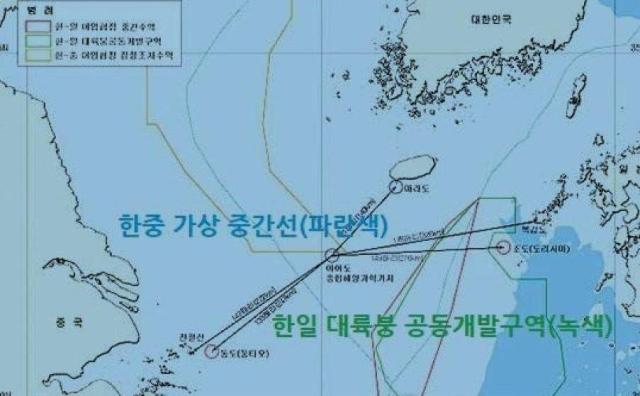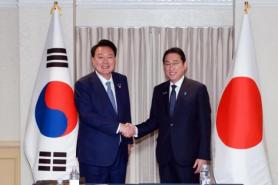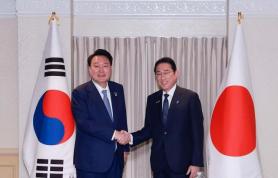
According to sources here, officials from the two countries resumed working-level talks about the decades-old agreement for the joint development zone called the "Block 7," which was signed in 1974. Either side can unilaterally nullify the agreement three years before its 50-year term expires in 2028.
The zone, which is believed to have plenty of oil, gas and other natural reserves, is located in the waters south of Korea's Jeju Island and west of Japan's Kyushu Island.
Japan had been reluctant to hold follow-up meetings since the last one was held in 1985.
Some attribute the island country's lukewarm attitude to the International Court of Justice's definition of continental shelves, which would be advantageous to Japan, as they are determined by proximity rather than geographical origin. This means that most of the area is likely to fall within Japanese waters once the agreement expires.
Copyright ⓒ Aju Press All rights reserved.



